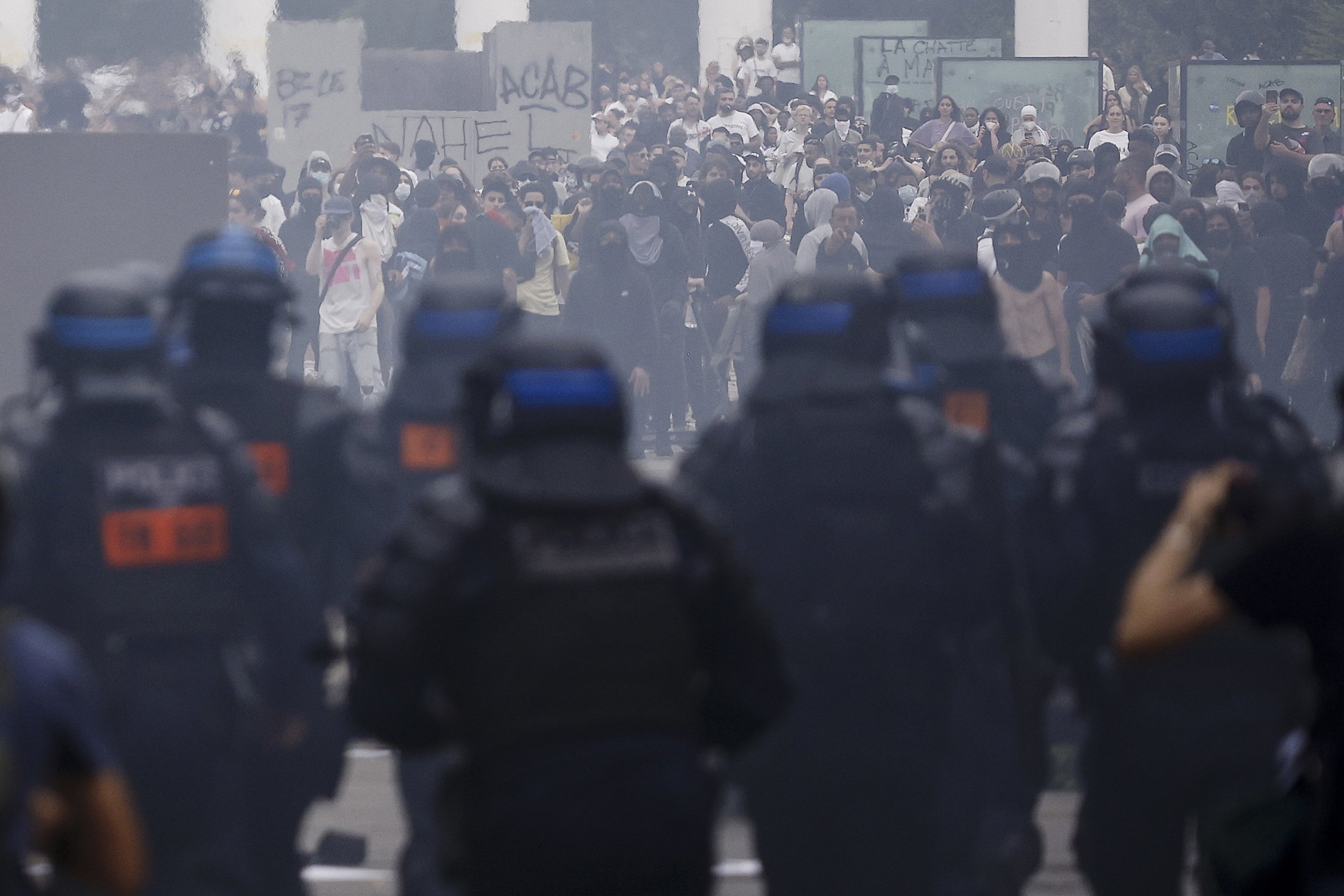Drastic measures are being imposed in France due to the wave of rioting that has swept the country with the suspension of all night-time French bus and tram services, and a curfew being declared in some cities. The French interior minister, Gérald Darmanin, has asked departmental prefects this Friday to cease running bus and tram services throughout the state from 9pm, after three nights of violent urban protest throughout the country, as a result of the death of young Nahel M. at the hands of the police. Darmanin also called for "the systematic approval of bans on the sale and transport" of "mortar" fireworks, cans of petrol, acids and flammable and chemical products.
Several cities and suburbs around the Paris metropolitan area have imposed curfews as of this Friday. Clamart in the southwestern suburbs of the French capital has declared a 9pm-5am curfew from Friday till Monday; neighbouring Meudon has also some imposed night-time restrictions. In the east of the capital, Neuilly-sur-Marne has restricted street movements after seven police vehicles were burnt out in rioting. Savigny-le-Temple to the south of Paris has followed suit. Eighty kilometres north of the French capital, the town of Compiègne has put in place a 10pm-6am curfew until Monday morning.
France cannot contain a leaderless youth revolt, broadcast live on TikTok
These drastic measures may be just the beginning, with the French government insisting that it will examine "all hypotheses" to restore "the republican order" in the face of the wave of protests. This implies, for the first time, putting on the table the potential declaration of a state of emergency. It is the conservative opposition that has demanded this exceptional measure, which involves giving more power to the security forces and restricting freedoms. The last time a state of emergency was declared in France was in November 2015, on the occasion of the Paris attacks. The executive could adopt it for a period of twelve days, which could be extended if the French Parliament so decides.
Police deploying armoured vehicles
On top of this, prime minister Élisabeth Borne has announced the deployment of armoured police vehicles to deal with violent riots in many French cities. "Additional mobile forces" will also be deployed, the French PM told AFP - while indicating that "large-scale events that mobilize personnel and may present risks to public order" may be cancelled, depending on the local situation. These are decisions that are part of the measures taken on the authority of the president of France, Emmanuel Macron, during the interministerial crisis unit meeting that took place this Friday at the interior ministry HQ. The French president has also spoken of the role of social media such as Snapchat and TikTok in speading the wave of violence, by fuelling copycat behaviour among young people.
Borne promised that the French government will study "the best response" to the current escalation, in the inter-ministerial meeting called by Macron - who called the exceptional forum to meet for the second consecutive day, after he himself abruptly abandoned the European Council meeting in Brussels without holding the usual press conference after two days of EU discussions. Meanwhile, the executive in Paris is still trying to take stock of the riots that have affected public roads and private buildings.
Concern across Europe
In the EU, concern is growing over the difficulty the French government is showing in stopping the protests, and there have been fears that it will spread to other countries. Incidents took place in Brussels on Thursday evening, after a protest was called for the death of Nahel M. A spokesperson for the German government, Steffen Hebestreit, has indicated that Berlin observes "with some concern" what is happening in France . For now, the visit that Macron plans to make to Germany between Sunday evening and Tuesday remains, but it is not entirely certain that it will go ahead.
According to the newspaper Le Monde, the protests occurring these days have little in common with those that took place in 2005, which questioned the French welfare state. Now what the demonstrators are questioning "is the sovereign state" of France, and this raises profound questions. Nor does this street violence have anything to do with the recent protests against pension reform.

